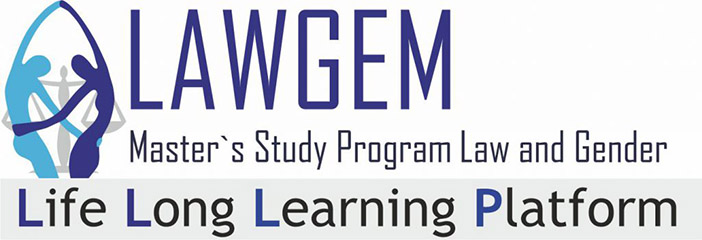In her lecture, Prof. Dr. Hunter started from the fact that it is impossible to think about family law without thinking about gender. Family law is populated by gendered characters – wives and husbands, mothers and fathers, same-sex couples and trans people. Consequently it is heavily involved in the construction of gendered subjects. Furthermore, the social context in which family law operates is thoroughly gendered, meaning that even when the law is expressed in gender neutral terms (‘spouses’, ‘partners’, ‘parents’) it has gendered effects. It follows that family law is a key site where gender equality might be promoted or, conversely, where gendered inequalities might be reproduced. In this presentation, Prof. Dr. Hunter focused on four areas of family law that have implications for gender equality or inequality: division of marital property on divorce, post-separation parenting arrangements, surrogacy, and family dispute resolution. The particular legal rules relating to each of these areas vary between jurisdictions. But whatever the rules may be, similar questions arise. How do the legal rules interact with the gender division of labour within families and gendered social structures? Does the law produce different material effects for women and men? What gendered subjects does the law construct and what value does it attach to them? Common themes also appear across these four areas. One of those themes is the public-private divide. This is a pervasive issue for family law. To what extent are events occurring and arrangements made within the ‘private’ sphere of the family seen as matters that are not the concern of the state? To what extent does family law rely on, encourage or fail to question ‘private’ arrangements? What are the gendered effects of the promotion and protection of privacy? Secondly, there are questions about the nature of gender equality itself. Legal rules often provide for formal equality, treating husbands and wives, mothers and fathers as if they were exactly the same. But this can fail to reflect gender differences and end up producing gendered disadvantage. In order to avoid systematic disadvantages, a more substantive approach to equality is needed. What, then,are the requirements for substantive equality in family law?
Prof. Dr. Rosemary Claire Hunter is Professor of Law and Socio-Legal Studies, University of Kent. She began her academic career in Australia, where she taught first at the University of Melbourne and then at Griffith University in Brisbane. At Griffith she served as Director of the Socio-Legal Research Centre and Dean of the Law Faculty. She moved to the UK in 2006, and spent eight years at the University of Kent and four years at Queen Mary University of London before returning to Kent Law School in 2018. Together with Professor Clare McGlynn and Dr Erika Rackley at Durham University, she was one of the co-organisers of the Feminist Judgments Project, in which a group of academics and practitioners wrote alternative judgments in a series of key cases in English law, imagining how a feminist judge sitting on the court might have decided the case. The project resulted in the publication of Feminist Judgments: From Theory to Practice (Hart Publishing, 2010). She was a founding editor in 2011 of feminists@law, an online open access journal of feminist legal scholarship, and continues to edit the journal with a group of Kent Law School colleagues. Professor Hunter’s current research on feminist judging includes projects with Professor Erika Rackley (Kent Law School) on Lady Hale’s contributions to the Supreme Court and to law more generally; with Professor Emerita Kathy Mack and Professor Sharyn Roach Anleu (Flinders University) on feminist judging in lower courts; and with Dr Danielle Tyson (Deakin) on sentencing in domestic homicide cases. She is currently engaged in several projects focusing on family courts’ handling of domestic abuse allegations, including a co-edited special issue of the Journal of Social Welfare and Family Law, Vol 40(4) (2018). Professor Hunter major publications are: Mapping Paths to Family Justice: Resolving Family Disputes in Neoliberal Times, 2017 (with A Barlow, J Smithson and J Ewing). Winner of the 2018 Hart SLSA Book Prize; Feminist Judgments: From Theory to Practice, 2010 (edited with C McGlynn and E Rackley), Domestic Violence Law Reform and Women’s Experience in Court: The Implementation of Feminist Reforms in Civil Proceedings, 2008; Rethinking Equality Projects in Law: Feminist Challenges, 2008 (edited); Choice and Consent: Feminist Engagements with Law and Subjectivity, Routledge-Cavendish, 2007 (edited with S Cowan).

